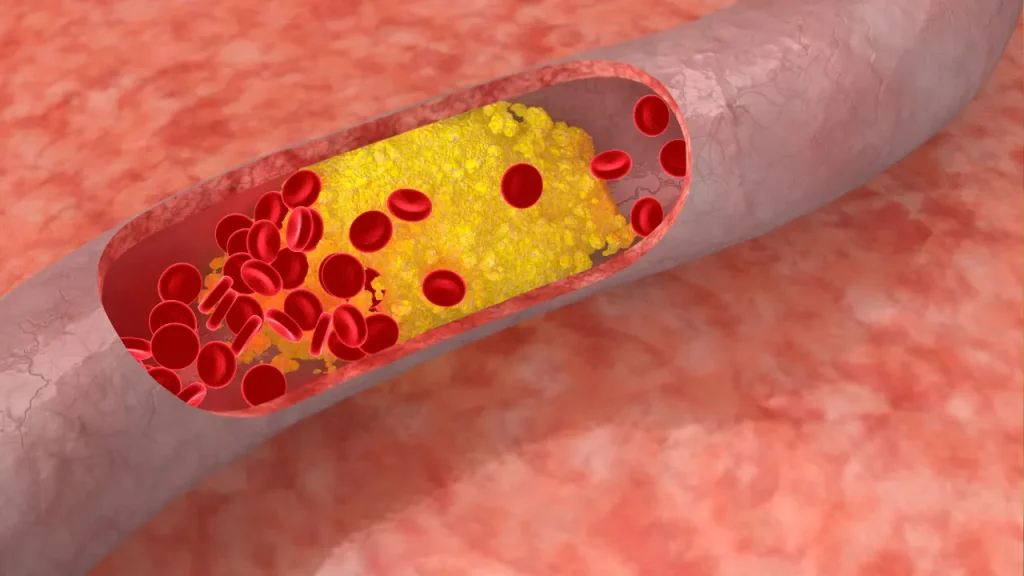Beta-sitosterol, also called -sitosterol, is a natural plant sterol that has received a lot of attention in recent years because it might be good for overall health. Plant sterols are in the cell membranes of plants and are chemically related to cholesterol. Beta-sitosterol is the most common plant sterol. It can be found in nuts, seeds, veggies, and plant oils, among other plant-based foods. This study goes into the chemistry of beta-sitosterol, how it works in the body, its health benefits, the best way to take it, possible side effects, and how it interacts with other drugs so that you can use it safely.
You May Also Like:
Finding the Best Supplements for Brain Fog After COVID: 5 Top Brands Reviewed
Beta Sitosterol: Benefits, Dosage, Side Effects, Drug Interactions, And Other Important Information is an original (NootropicsPlanet) article.
Nature of Beta-Sitosterol
Beta-sitosterol is a native plant sterol that can be found in many different kinds of plants. It is a molecule that dissolves in lipids and is essential to the structure and function of the membranes of plant cells. Beta-sitosterol is found everywhere in nature because it is important to plants for keeping their cells healthy and whole.
Beta-sitosterol is found in many plant-based foods, but it is most concentrated in nuts, seeds, beans, whole grains, and vegetable oils. Some examples of where beta-sitosterol comes from are:
a. Nuts and Seeds: Almonds, walnuts, sunflower seeds, pumpkin seeds, and sesame seeds all have a lot of beta-sitosterol.
b. Legumes: Soybeans, kidney beans, and chickpeas are all good sources of beta-sitosterol.
c. Whole Grains: beta-sitosterol is found in large amounts in wheat seed, barley, and rye.
d. Veggies: Brussels sprouts, cabbage, and broccoli are all good sources of beta-sitosterol from vegetables.
e. Vegetable Oils: Canola oil, corn oil, and olive oil are all high in beta-sitosterol.
Health Benefits of Beta-Sitosterol
A. Health of the Heart and Blood Vessels: Beta-sitosterol has been explored a lot for its ability to lower cholesterol. Multiple clinical studies have shown that taking beta-sitosterol supplements lowers total cholesterol and low-density lipoprotein (LDL) cholesterol levels immensely. Both of these are risk factors for heart disease.
B. Benign Prostatic Hyperplasia (BPH): Beta-sitosterol has been shown to ease the symptoms of BPH, a common disease in older men that causes the prostate gland to get bigger. People think that beta-sitosterol stops an enzyme called 5-alpha-reductase from turning testosterone into a hormone called dihydrotestosterone (DHT), which is linked to prostate growth.
C. Anti-inflammatory Effects: Several studies have shown that beta-sitosterol has properties that reduce inflammation. Some people think this is because it can control the production of pro-inflammatory cytokines, which could help with inflammatory diseases like rheumatoid arthritis and asthma.
D. Anticancer Properties: Preliminary in vitro and animal studies show that beta-sitosterol may have anticancer properties, especially against prostate, breast, and colon cancer cells. Beta-sitosterol has these effects by causing apoptosis, stopping cell growth, and adjusting the immune reaction, among other things. But more clinical tests are needed to prove that it works in people.
e. Managing Diabetes: There is some evidence that beta-sitosterol can help people with type 2 diabetes control their blood sugar by making insulin more sensitive and decreasing the amount of glucose absorbed in the intestines. Still, more study needs to be done to confirm these results.

Chemistry of Beta-Sitosterol
Beta-sitosterol is a naturally occurring chemical that is part of the phytosterol group. This group is made up of sterols and stanols that come from plants. Beta-sitosterol is a molecule with 28 carbon atoms, a hydroxyl group linked to the third carbon in the A ring, and a hydrocarbon side chain at the C-17 position. Its chemical name is stigmast-5-en-3-ol, and its formula is C29H50O.
Beta-sitosterol has both hydrophilic and hydrophobic properties because of its hydroxyl group and hydrocarbon side chain. This means it can interact with both polar and nonpolar molecules. Beta-sitosterol can change the fluidity, permeability, and general function of cell membranes because it can move in both directions.
Physiological Properties of Bets Sitoserol
Beta-sitosterol is good for your health because it has a similar structure to cholesterol and can act in different ways. The main ways beta-sitosterol does what it does are:
A. Cholesterol Solubilization: Beta-sitosterol fights with cholesterol for solubilization in mixed micelles of the intestinal lumen. This makes it harder for enterocytes to take in cholesterol. So, the cholesterol that isn’t absorbed is passed in the feces, which lowers the amount of cholesterol in the blood.
B. Modulation of Immune Response: Beta-sitosterol has been shown to control the release of pro-inflammatory cytokines like interleukin-6 (IL-6) and tumor necrosis factor-alpha (TNF-). This effect on the immune system is thought to add to its anti-inflammatory and maybe even anti-cancer effects.
C. Antioxidant Properties: Beta-sitosterol can get rid of free radicals, which lowers oxidative stress and protects biological parts from oxidative damage.

Optimal Dosage of Beta-Sitosterol
The best amount of beta-sitosterol to take depends on why the vitamin is being taken. Clinical trials have shown that daily doses of 1.5 to 3 gm are helpful at lowering cholesterol. When it comes to BPH, doses of 60 to 130 mg daily have been shown to make symptoms better. But it’s important to talk to a doctor before starting any vitamin to figure out the right amount for your needs and health.
Side Effects of Beta-Sitosterol
Beta-sitosterol is usually safe when taken in small amounts as a supplement or as part of a healthy diet. However, some people may have minor stomach side effects like nausea, indigestion, gas, or diarrhoea. In rare cases, beta-sitosterol has been said to cause sexual dysfunction in men with BPH or make it worse if they already have it.

Potential Substance Interactions
A. Cholesterol-Lowering Drugs:Beta-sitosterol may make statins and other lipid-lowering drugs work better at cutting cholesterol, which could increase the risk of side effects. Before taking beta-sitosterol with medicines that drop cholesterol, it’s important to talk to a doctor or nurse.
B. Drugs that Stop Blood from Clotting and Stop Platelets from Sticking Together: Beta-sitosterol is said to have anticoagulant and antiplatelet properties. When taken with blood-thinning or platelet-thinning drugs like warfarin, aspirin, or clopidogrel, the chance of bleeding may go up. Because of this, it is very important to talk to a doctor before taking beta-sitosterol with these medicines.
Responsible Usage of Beta-Sitosterol
Consider the following rules for using beta-sitosterol as a food supplement in a safe way:
A. Talk to a doctor before you start taking supplements, especially if you already have health problems or are on drugs.
B. Get beta-sitosterol from a trusted source to make sure the product is safe and of good quality.
c. Follow the instructions for how much to take for the goal of the supplement.
d. Keep an eye out for possible side effects and stop taking the vitamin if they happen.
Beta-Sitosterol:
Conclusion
Beta-Sitoserol supplements can be very beneficial to our health, and it is important to speak to your doctor before taking it.By eating a balanced diet with a range of plant-based foods, people can get enough beta-sitosterol and can be able to use its health-promoting properties. But people who want specific therapeutic benefits may want to take supplements with the help of a medical professional.

References:
- The role of beta-sitosterol in ameliorating cardiovascular risk. Retrieved from: https://www.liebertpub.com/doi/full/10.1089/met.2019.0104
- Phytosterols: Natural compounds with established and emerging health benefits. Retrieved from: https://onlinelibrary.wiley.com/doi/full/10.1002/osp4.295
Important Note: The information contained in this article is for general informational purposes only, and should not be construed as health or medical advice, nor is it intended to diagnose, prevent, treat, or cure any disease or health condition. Before embarking on any diet, fitness regimen, or program of nutritional supplementation, it is advisable to consult your healthcare professional in order to determine its safety and probable efficacy in terms of your individual state of health.
Regarding Nutritional Supplements Or Other Non-Prescription Health Products: If any nutritional supplements or other non-prescription health products are mentioned in the foregoing article, any claims or statements made about them have not been evaluated by the U.S. Food and Drug Administration, and such nutritional supplements or other health products are not intended to diagnose, treat, cure, or prevent any disease.


